
We kindly inform you that, as long as the subject affiliation of our 300.000+ articles is in progress, you might get unsufficient or no results on your third level or second level search. In this case, please broaden your search criteria.

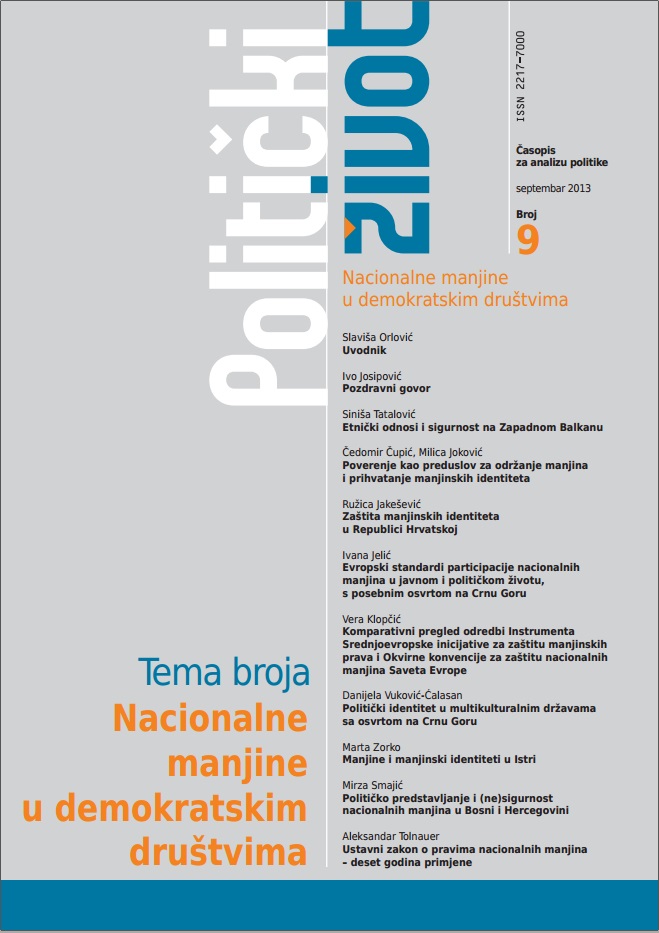
The notion and meanings of trust. Trust as a cultural precondition of democratic order belongs to the man’s second nature. The significance of universal values for the foundation of trust. The relation of reliability, risk, expectance and trust. Disappointment in trust. Trust as moral obligation. Two kinds of human obligations: obligations stemming out of body movement and impersonal obligations. Trust between citizens and authorities and trust between citizens themselves, coming out of their differences. Mistrust in political and societal life. Prejudice and stereotypes toward others and different ones and trust. Trust in pre-modern and modern societies. The significance of trust for political culture. I-functions of importance for trust: empathy, dialogue, tolerance and distance. National homogeneity as an articulation of mistrust to minorities. The significance of autonomy for maintaining minority identities.
More...
The dominant approach in genocide studies focuses on the intentions and motives of mass murderers. However, in many cases, natural phenomena, pathogens and machines determine the nature and course of genocidal mobilization. The aim of this article is to present the advantages of the actor-network theory (ANT) in explaining genocidal mobilization, taking into account environmental factors. “Natural objects” have been selected from a rich catalogue of non-human actors. The author divides these objects into three classes, showing that pathogens (associated with “the asymmetry of resistance” of victims and perpetrators) and deserts are of key importance in the history of collective violence. Referring to specific cases (in particular, the conquest and colonization of the Americas and Australia, the genocide of the Herero and Nama peoples, the Armenian genocide, Shoah), the author identifies that adopting the assumptions and methods of ANT reveals new aspects of the genocidal process. This indicates the need for considering the politics of non-human actors, delegating morality and law, tracking consecutive translations, rejecting the division into qualitatively different micro- and macro-actors, and tracking the emergence of new actants and forms of knowledge during genocide.
More...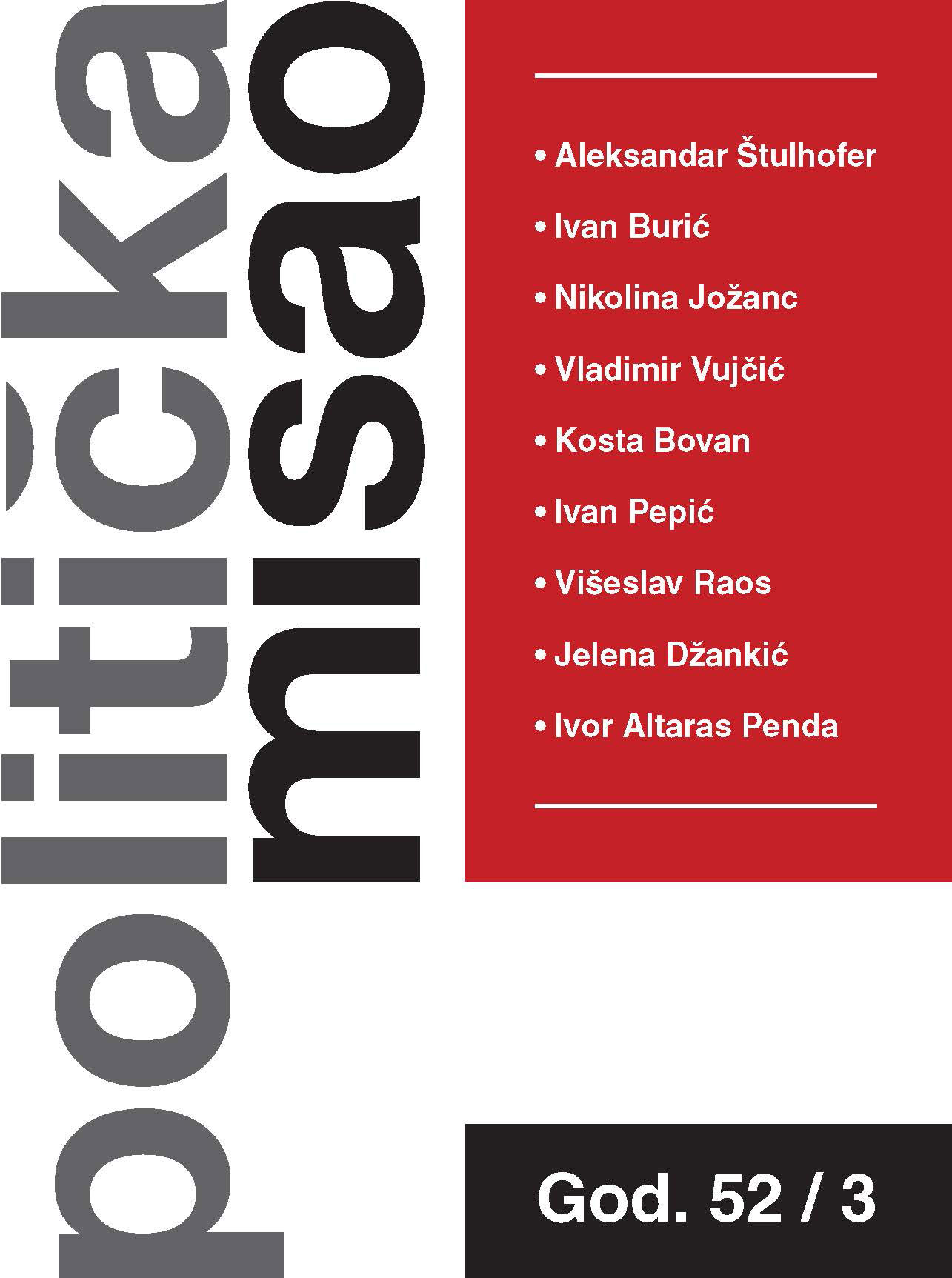
Reflections on political systems are necessarily based on some sort of model of political man – an individual who thinks, decides, discusses, and participates in politics. This paper offers a review of modern conceptions of political man structured in five models. The personality model highlights the importance of childhood experiences for political behavior and belief in adulthood; the sociological model highlights the importance of primary and interest groups; the sociopsychological model highlights the importance of party identification; the rational economic model highlights the efficiency of thought and self-interest;while the cognitive model highlights the citizens’ mental capabilities.The main assumptions, methodology, and findings for each model are presented in the paper. Also, implications for democratic processes for each model are explained. The conclusion offers a critical survey of the current state of research on political man, as well as recommendations for further research.
More...
The article presents the voting behaviour in the municipality of Szadek in the elections of 2015. The investigation of the electoral behaviour comprises the turnout and voting results in each of the electoral districts, and a synthetic city-countryside comparison. The article is an attempt to explain the variation in voter turnout and transfers within the electorate.
More...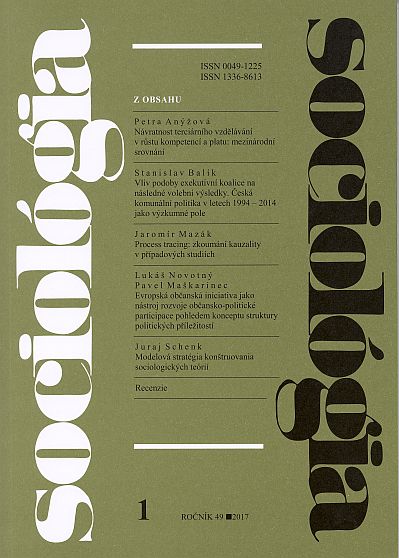
The Influence of the Type of the Executive Coalition to the Next Election Results. Czech Local Politics in 1994 – 2014 as a Field for Explore. This article focuses on the topics related to the research of the party convergence and its impact on the election results. At the research field of the Czech municipal politics we try to answer the question whether voters behave differently towards the members of grand and other coalitions in the next elections and whether that behaviour changes in time. The impact of the coalition behaviour to the election results of the four strongest political parties at the municipal level in twenty years between 1994 and 2014 is studied.Sociológia 2017, Vol. 49 (No. 1: 37-54)
More...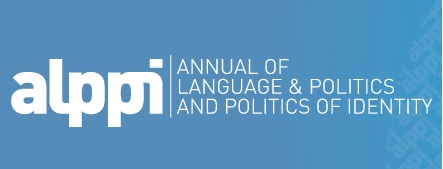
The paper introduces the concept of ontological security to the study of de facto states and forwards the claim that the field would greatly benefit from putting more emphasis on the identity of these entities by drawing on a growing body of literature about state identity and ontological security. The starting premise is that, while non-recognition illegalizes de facto states and threatens their physical security, non-engagement presents no physical threat, but de-legitimizes de facto states and threatens their ontological security. The main argument developed on this basis is that de facto states act to fulfil their self-identity needs and preserve their ontological security, sometimes going as far as compromising their physical security and even their existence. The author goes on to provide arguments for the relevance of an ontological security perspective for the study of de facto states and – in particular – of the post-Soviet de facto states). In the second part of the paper, state identity and ontological security in the Caucasus are discussed in order to shed light on the relations between honour, identity, and foreign policy. Finally, the ontological security perspective is applied to analyse the case of the Chechen Republic of Ichkeria (CRI) between 1996 and 1999, its eventual defeat and reincorporation into its parent state – the Russian Federation.
More...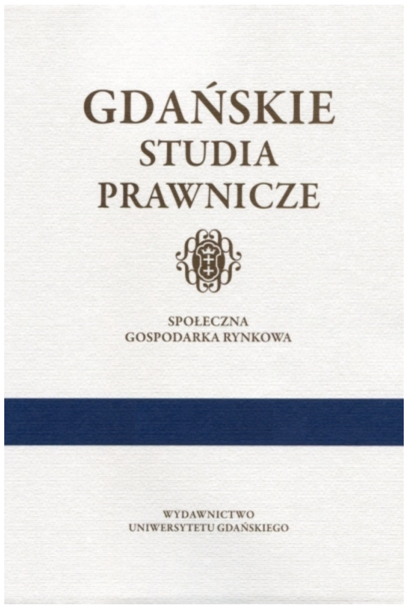
The Author refers to the achievements of Professor Andrzej Pullo concerning the American federalism. While analyzing the relations between the federation and the states in the paper Division of Powers between the Federation and the States in the United States of America Andrzej Pullo emphasized the evolution from ,,dualistic federalism” to ,,cooperative federalism”. This approach accurately showed the fact that the dualistic model, included in the constitution, lost its importance as a result of expanding cooperation between federal and state authorities, which became particularly evident after the announcement of the ,,New Deal” by president E D. Roosevelt. A new challenge was brought by the practice of federal subsidies for states, which could theoretically weaken their position in the system of the division of powers. The theory of the ,,new federalism” was focused on stopping this threat. It was supported by the Supreme Court during the presidency of W.Rehnquist, which stopped the tendency to expand the federal power by its rulings. Recent theories, such as ,,polyphonic federalism”, are the attempt to reflect complex relations between the federation and states. This contemporary perception is characterized by realistic approach, but there is still the question whether so multi-threaded model can serve as the constitutional framework for assessing political practice. From this point of view, the ,,dualistic model” as a constitutional model do not lose its significance, though the political practice reveals that it has undergone important modifications affecting the new forms of cooperation between the federation and states. It was visible when the theory of ,,cooperative federalism” was created and today leads to a new theoretical determination of this cooperation.
More...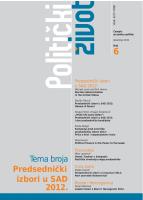
Political discourse and rhetoric have always been accused of focusing more on the form than the content. Of creating illusions to people and not delivering on their promises, in particular when campaigning for political office. The article lies upon two conceptual premises, namely 1) language cannot be neutral – it reflects and structures our ideologies and world views; 2) in order to advance their agenda, politicians aim to persuade the public and other relevant audiences – political power thus derives from the power to persuade. The following text will attempt to analyse political discourse of presidential candidates in the American race for president in 2012, while sheding some light on the theory of political discourse and its analysis.
More...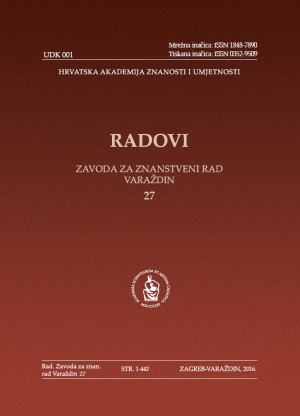
When talking about the festival’s international dimension, we can observe, analyze and valorize its influence, widening and effects through few shapes and aspects. First is participation of foreign ensembles, orchestras, soloists, conductors, directors, costume designers, production designers and other authorial personalities during all 45 years of existence of the festival. Second aspect are partner countries and their role in development the festival’s international dimension, since modification of the concept in 2006. Third are intense diplomatic, cultural and economic activities of management board, organizers and founders. Forth, also notable and important aspect, are monitoring and reviews of foreign journalists and media. Fifth and finally yet importantly, are concerts within regular program of the festival, held abroad.
More...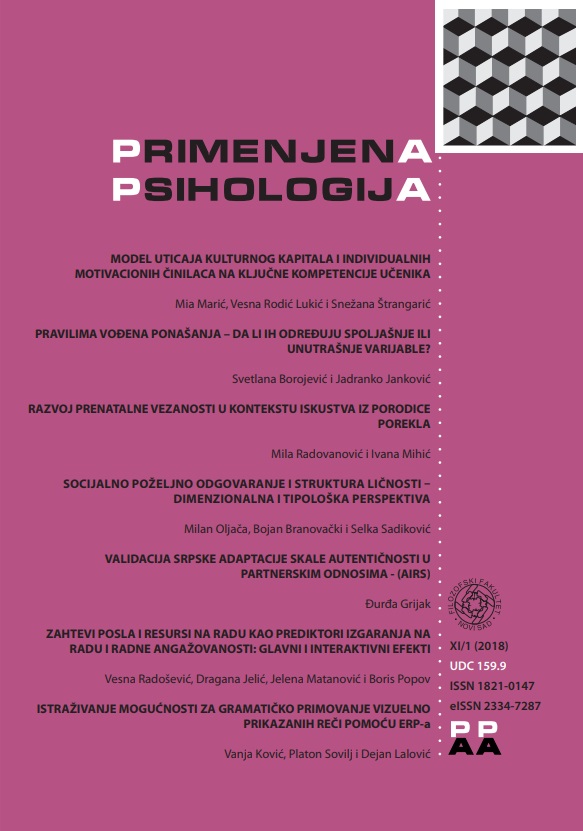
Previous research has shown that since the beginning of the 1990s, differentiation in the ideological orientations of political parties in Serbia has been increased. Comparing three samples, we explored the temporal stability of relations between evaluations of Serbian political parties (DSS, DS, SRS, SPS, SNS, and LDP) and lexically derived ideological dimensions: Traditional and Religious Sources of Authority, Unmitigated Self-Interest, Communal Rationalism, and Subjective Spirituality. We hypothesize that: 1) political parties should be divided into conservative and socio-liberal parties, and this structure should become stable over time; 2) the evaluation of political parties should consistently reflect their political ideology orientation : conservative parties should be related to an indicator of conservative ideology, Traditional Religiosity, while socio-liberal parties should be related to a humanistic ideological orientation, Communal Rationalism. Data was collected in three time-points: 2010 (N = 102), 2014/15 (N = 358) and 2016 (N = 117) from university students in Serbia. In all three studies principal component analyses of evaluations of political parties showed that two components were extracted and interpreted as evaluations of the National-Conservative Parties and Socio-Liberal Parties (in 2010 and 2014), i.e. Democratic parties (in 2016). However, while the structure of evaluations of the National-Conservative Parties remained stable, the congruence of evaluations of the Socio-Liberal Parties decreased over time. Additionally, the results of regression analyses showed that evaluations of the National-Conservative Parties were rooted in Traditional and Religious Sources of Authority and UnmitigatedSelf-interest, but the percentage of explained variance decreased over time. The evaluations of the Socio-Liberal Parties had much weaker relations with ideological orientations throughout all three time-points. The findings suggested that there was some kind of ‘’ideological crisis’’ in Serbia, primarily regarding the Socio-Liberal Parties and their supporters.
More...
This study analyses the linkage between authoritarianism and three indicators that describe one’s general cognitive orientation towards the world of politics: political knowledge, general interest in politics, and interest in the election campaign. Individuals high in authoritarianism are hypothesized to be less politically competent and less interested in politics, due to their resistance to adopting new information and to changing the adopted beliefs. This hypothesis is based on the classical description of the authoritarian personality, but it has not been adequately empirically verified yet. The data are taken from a post-election public opinion survey conducted in 2012 after the presidential and parliamentary elections, on a random sample of voting age citizens of Serbia (N = 1568). The results show that authoritarianism and the level of political knowledge are significantly and negatively correlated, even after controlling for the basic sociodemographic variables. The intensity of political interest is not significantly correlated with authoritarianism. Additional comparison of the misinformed and uninformed groups (those who provided incorrect answers, and those who answered “don’t know”, respectively) did not support the view that authoritarian persons are more inclined to erroneously guess an answer than to simply say “don’t know”. The study concludes that the association between political knowledge and authoritarianism is based on deeper psychological roots, while the (lack of) association with political interest is likely to be con-text-dependent.
More...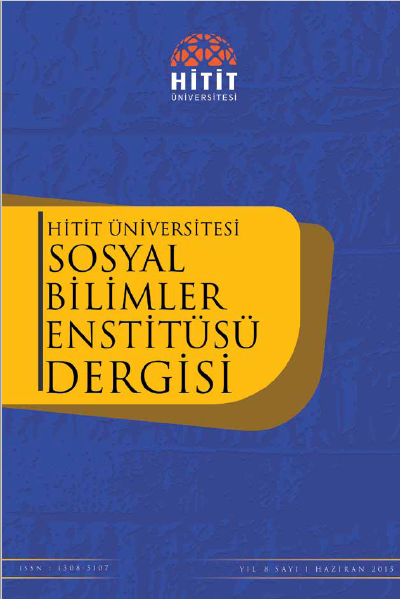
Many approaches discuss the nature of institutions, their possible impacts, interactions and power relations among them in the analysis of social realm. Historically, these arguments determine the focal point as individual, institution or social relations, and tend to define social reality based upon it. In theorizing public administration, four traditions stand out. The first is individualist perspective that puts forward individuals to be independent in their decisions and actions, and so to shape social structure by their self-determination. The second tradition is institutionalist approach that asserts not only individual interactions but also institutions and institutionalized interactions affect the individuals by categorizing and limiting their actions. The last two traditions which are Marxist and post-modern approaches will be excluded in the analysis. This study aims to address under what perspectives recent institutional reforms are performed in Turkey.
More...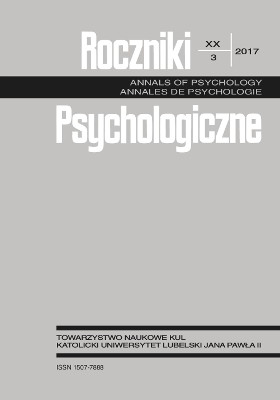
This article describes how psychological models of power adopt the dominance and functionalist perspective in examining the influence of power on power holders. According to the dominance perspective, power leads to a desire to increase dominance over others and has a negative and corruptive influence on the person holding it, whereas the functionalist perspective puts emphasis on how power aids the attainment of the power holder’s and the group’s goals and should therefore trigger processes helpful in goal attainment. The main object of analysis is the assumptions about how power influences social perception.
More...
This article describes how psychological models of power adopt the dominance and functionalist perspective in examining the influence of power on power holders. According to the dominance perspective, power leads to a desire to increase dominance over others and has a negative and corruptive influence on the person holding it, whereas the functionalist perspective puts emphasis on how power aids the attainment of the power holder’s and the group’s goals and should therefore trigger processes helpful in goal attainment. The main object of analysis is the assumptions about how power influences social perception.
More...
The local elections that were held in November 2014 stirred up considerable controversy in Po-land. The article is an attempt to describe how Poles evaluated the overall functioning of democ-racy in the context of these elections and what determinants significantly contributed to that evaluation. We examined three levels of democracy evaluation: general beliefs (Jost’s system justification), the current state of democracy (Dahl’s democratic institutions), and specific events connected with the functioning of the democratic system (the quality of the elections and the level of trust in the elected representatives). We also tested the extent to which these levels of democracy evaluation were explained by sociopolitical determinants, such as the general level of trust in people, patriotism and nationalism, or the experience of security. The study was conducted shortly after the second round of the election on a sample of 524 subjects. The obtained results show a low quality of democracy (particularly on the level of general beliefs and trust in the newly elected authorities) and reveal associations between aspects of evaluation and the investigated determinants.
More...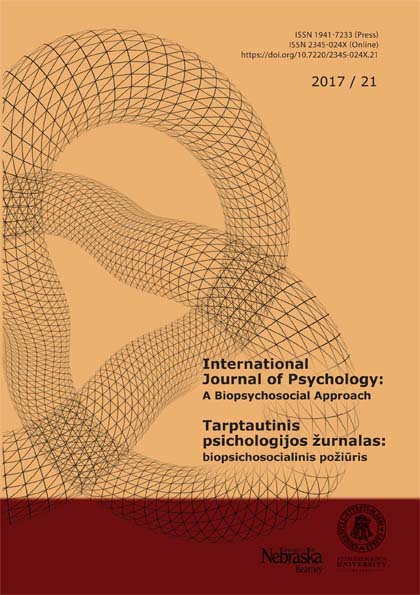
Background. There are quite a few studies about the connection between political activism and subjective wellbeing. The main problem is that most of such research has been done using student samples but not all the population. Purpose. The purpose of this study was to analyse the connection between political activism and subjective wellbeing using representative sample of the European population. The main research question is whether political activism is positively related to subjective wellbeing. Methods and data. This article is based on European Social Survey data of the 6th round, mainly on the data of the rotating module “Personal and Social Wellbeing” and core modules “Media and Social Trust” and “Politics”. Interviews were carried out with 54 673 respondents aged 15 and over in 29 European countries. The method of statistical data analysis was the correlation analysis of measures of political activism and measures of subjective wellbeing (Pearson’s r coefficient). Results. Results indicated statistically significant correlations between the indicators of political activism and dimensions of subjective wellbeing. Conclusions. Political activism induces subjective wellbeing and is a prerequisite to feeling good. All the indicators of subjective wellbeing correlated with at least two indicators of political activism. These correlations were mainly positive, with a few exceptions of unconventional political activism. The strongest positive and statistically significant correlations between the indicators of political activism are with items of community wellbeing and supportive relationships.Į
More...
The mechanisms of defence of population from political manipulation in modern societies are investigated. It is suggested to examine mechanisms of protecting from negative political influence on state, public and personality levels.
More...
The article reviews the main achievements of sociology and social psychology research in the field of political motivation that emphasize taking into account the dominant influence of social environment on any socio-political activity of man.
More...
Proposed to study the phenomenon of political will in the context of the political science study of personality, in particular through the consideration of the basic ideas of "self-concept" as important to clarify the issues of political will, political leadership and political power. The article presents an analysis of the main directions of research in the field of political will, political psychology.
More...